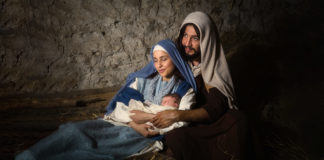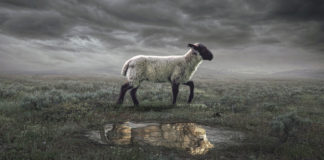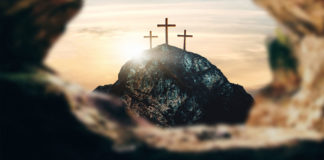Joseph of Nazareth: The virgin’s husband and the Son’s father
He married a pregnant woman and accepted the responsibility of raising and educating a Son who was, because of His divine power, his Father. This was a mission full of risks and challenges for a humble carpenter from Nazareth, who has come to attract the attention and respect of generations.
Circumstantial faith
As a believer—for present purposes, defined simply as one who believes—I have often wondered what and how I would believe differently had I been born into a family and culture with different beliefs. Obviously, I believe what I believe because I believe it to include truth, but would I have believed in this same truth if I had not been raised and taught...
Teaching children how to pray
In talking to pastor Cristian Modan, the religion teacher and chaplain at Mihai Ionescu School in Bucharest, I wanted to find out how we should teach children to communicate with God.
What do dreams mean?
Last night I had one of those dreams. You know, the kind you wake up from and remember. Basically, there were a lot of things that were unusual, but people and places that were familiar—common themes for many who remember their dream content.
The Ecumenism Files III: From the Reformation to Postmodernity
The dialectical spirit of ecumenism gives rise, among other things, to a question whose full answer is still awaited: How is it that the critical spirit and rationalism of Enlightenment origin, combined with making the Bible available to ordinary people, has led to so many schisms?
The mystery of the incarnation
The birth of Jesus Christ is one of the most significant events in human history. Celebrated at Christmas, by some with emotion, by others with indifference, most of the time the holiday loses sight of the main Character. Religious meanings remain in the shadows, while commercial dimensions are pursued at all costs.
Not by sight
Born into a family of surfers, one could say the love of the salty ocean air courses through the veins of his body. Named after legendary surfer Derek Ho, even his name embodies the hopes and expectations of what he was to become.
The hour of His judgment
The judgment of God is the greatest demonstration of His justice in the universe—the other side of the coin bearing the image of the Cross. In God, love and faithfulness meet together; righteousness and peace kiss each other (Psalm 85:10).
Saved in the surf
Growing up on the sunny east coast of Australia meant summers at the beach. I was no surfer dude but the crash of waves and unmistakable squeak of hot sand was often a soundtrack in my adolescence. It’s easy to romanticise the white sand beaches and crystal blue hues of Australia’s coastal waters but now, particularly as a parent, I am aware of the danger...
How did Jesus view the Scriptures?
Jesus had the highest regard for the Scriptures. The Gospels show that He was familiar with the content of the Scriptures, which He saw as the final authority for establishing truth, rejecting temptation, and choosing the way forward in the present and the future.
Forgiveness is not an emotion
It is hard to remain indifferent to a life story like that of Terri Roberts, the mother of a young man who, in a still-unexplained moment of madness, stormed into an all-girls Amish school and began shooting, killing five of the students before killing himself.
Suffering evil and loving your enemies
The greatest Teacher I have ever known is Jesus Christ, and one of His most profound teachings is 'Love your enemies'.
What the “miracle of the resurrection” means to Christians
"We cry out to the dry bones, 'Come alive! Come to life!' / We cry out to the dead hearts: 'Rise up! Come to life! Let us see an army rise from the ashes'". The song from which I extracted these verses is so rich in literary devices that, probably, if we randomly chose a person and had them listen to it, they...
Born again | The unimaginable personal change
Jesus replied, “Very truly I tell you, no one can see the kingdom of God unless they are born again” (John 3:3).


























